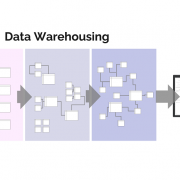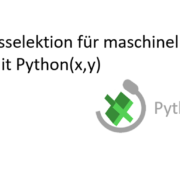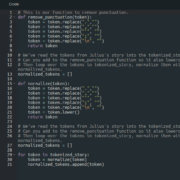Closing the AI-skills gap with Upskilling
Closing the AI-skills gap with Upskilling
Artificial Intelligent or as it is fancily referred as AI, has garnered huge popularity worldwide. And given the career prospects it has, it definitely should. Almost everyone interested in technology sector has them rushing towards it, especially young and motivated fresh computer science graduates. Compared to other IT-related jobs AI pays way higher salary and have opportunities. According to a Glassdoor report, Data Scientist, one of the many related jobs, is the number one job with good salary, job openings and more. AI-related jobs include Data Scientists, Analysts, Machine Learning Engineer, NLP experts etc.
AI has found applications in almost every industry and thus it has picked up demand. Home assistants – Siri, Ok Google, Amazon Echo — chatbots, and more some of the popular applications of AI.
Increasing adoption of AI across Industry
The advantages of AI like increased productivity has increased its adoption among companies. According to Gartner, 37 percent of enterprise currently use AI in one way or the other. In fact, in the last four year adoption of AI technologies among companies has increased by 270 percent. In telecommunications, for instance, 52 percent of companies have chatbots deployed for better and smoother customer experience. Now, about 49 percent of businesses are now on their way to alter business models to integrate and adopt AI-driven processes. Further, industry leaders have gone beyond and voiced their concerns about companies that are lagging in AI adoption.
Unfortunately, it has been extremely difficult for employers to find right skilled or qualified candidates for AI-related positions. A reports suggests that there are total 300,000 AI professionals are available worldwide, while there’s demand for millions. In a recent survey conducted by Ernst & Young, 51 percent AI professionals told that lack of talent was the biggest impediment in AI adoption.
Further, O’Reilly, in 2018 conducted a survey, which found the lack of AI skills, among other things, was the major reason that was holding companies back from implementing AI.
The major reason for this is the lack of skills among people who aspire to get into AI-related jobs. According to a report, there demand for millions for jobs in AI. However, only a handful of qualified people are available.
Bridging the skill gap in AI-related jobs
Top companies and government around the world have taken up initiatives to close this gap. Google and Amazon, for instance, have dedicated facilities which trains in AI skills. Google’s Brain Toronto is a dedicated facility to expand their talent in AI. Similarly, Amazon has facility near University of Cambridge which is dedicated to AI. Most companies either already have a facility or are in the process of setting up one.
In addition to this, governments around the world are also taking initiatives to address the skill gap. For instance, government across the world are pushing towards AI advancement and are develop collaborative plans which aims at delivering more AI skilled professionals. Recently, the white house launched ai.gov which is further helping to promote AI in the US. The website will offer updates related to AI projects across different sectors.
Other than these, companies have taken this upon themselves to reskills their employees and prepare them for future roles. According to a report from Towards Data Science, about 63 percent of companies have in-house training programs to train employees in AI-related skills.
Overall, though there is demand for AI professionals, lack of skilled talent is a major problem.
Roles in Artificial Intelligence
Artificial Intelligence is the most dominant role for which companies hire across artificial Intelligence. Other than that, following are some of the popular roles:
- Machine learning Engineer: These are the people who make machines learn with complex algorithms. On advance level, Machine learning engineers are required to have good knowledge of computer vision. According to Indeed, in the last year, demand for Machine Learning Engineer has grown by 344 percent.
- NLP Experts: These experts are equipped with the understanding of making machines computer understand human language. Their expertise includes knowledge of how machines understand human language. Text-to-speech technologies are the common areas which require NLP experts. Demand for engineers who can program computers to understand human speech is growing continuously. It was the fast growing skills in Upwork’s list of in-demand freelancing skills. In Q4, 2016, it had grown 200 percent and since then has been on continuously growing.
- Big Data Engineers: This is majorly an analytics role. These gather huge amount of data available from sources and analyze it to derive insights and understand patter, which may be further used for machine learning, prediction modelling, natural language processing. In Mckinsey annual report 2018, it had reported that there was shortage of 190,000 big data professionals in the US alone.
Other roles like Data Scientists, Analysts, and more also in great demand. Then, again due to insufficient talent in the market, companies are struggling to hire for these roles.
Self-learning and upskilling
Artificial Intelligence is a continuously growing field and it has been advancing at a very fast pace, and it makes extremely difficult to keep up with in-demand skills. Hence, it is imperative to keep yourself up with demand of the industry, or it is just a matter of time before one becomes redundant.
On an individual level, learning new skills is necessary. One has to be agile and keep learning, and be ready to adapt new technologies. For this, AI training programs and certifications are ideal. There are numerous AI programs which individuals can take to further learn new skills. AI certifications can immensely boost career opportunities. Certification programs offer a structured approach to learning which benefits in learning mostly practical and executional skills while keeping fluff away. It is more hands-on. Plus, certifications programs qualify only when one has passed practical test which is very advantageous in tech. AI certifications like AIE (Artificial Intelligence Engineer) are quite popular.
Online learning platforms also offer good a resource to learn artificial intelligence. Most schools haven’t yet adapted their curriculum to skill for AI, while most universities and grad schools are in their way to do so. In the meantime, online learning platforms offer a good way to learn AI skills, where one can start from basic and reach to advance skills.










good article provide more realistic information.
if possible discuss the way of problem solving in AI
Here is a fine offers for win. data-science-blog.com
http://bit.ly/2Kyv4pr